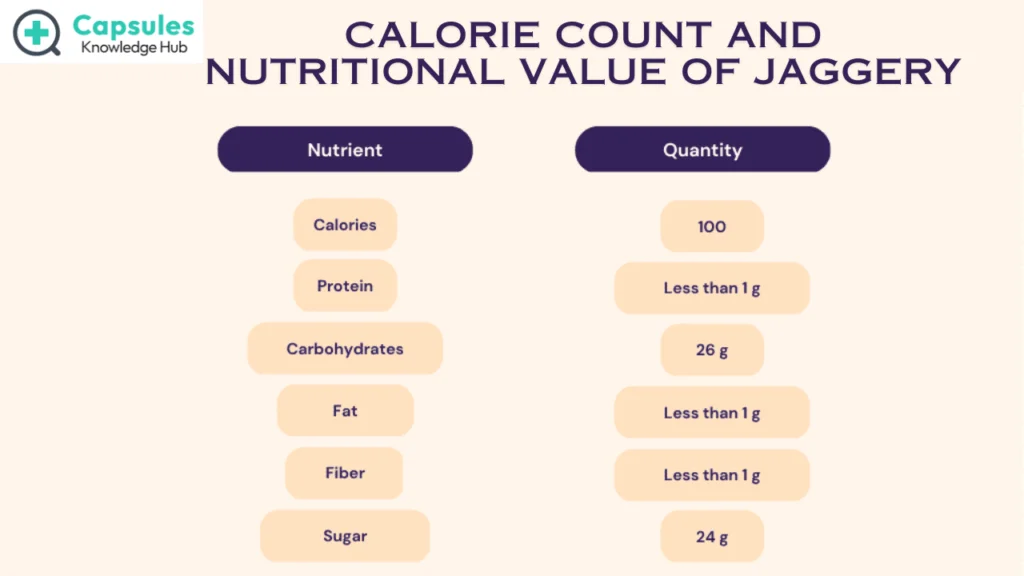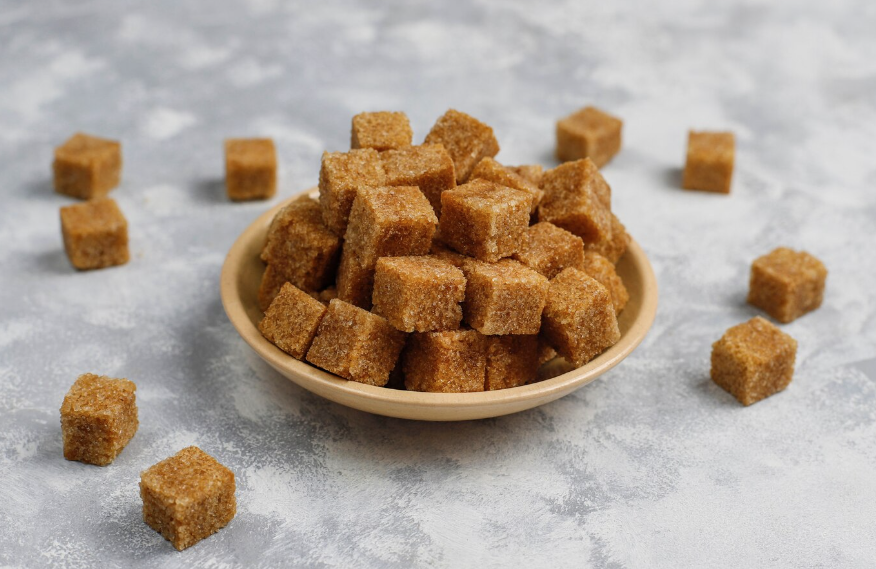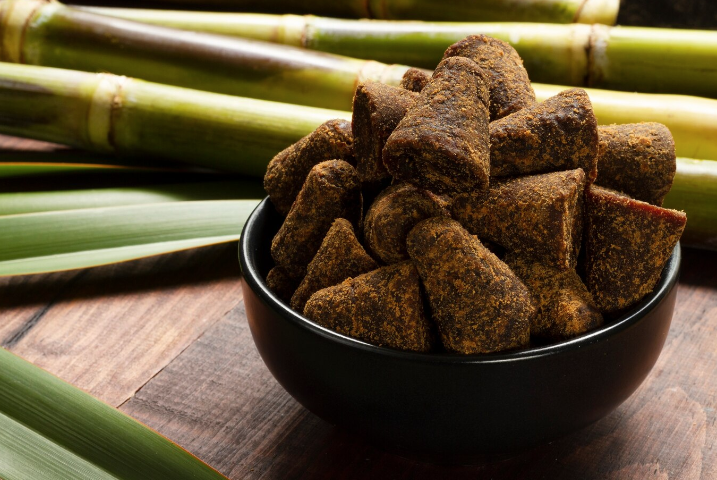In the realm of natural sweeteners, jaggery stands out as a true gem, revered not only for its delightful flavor but also for its array of health benefits. Derived from sugarcane or palm sap, jaggery has been a staple in traditional cuisines for centuries, offering a rich sweetness paired with a host of essential nutrients. At Wellhealthorganic.com, we’re passionate about bringing you the finest natural ingredients, and jaggery is no exception. Join us as we delve into the remarkable health benefits of jaggery and discover why it deserves a place in your pantry.
Unraveling the Essence of Jaggery
Jaggery, known as “gur” in Hindi, is a natural sweetener crafted through a time-honored process. It begins with the extraction of sugarcane juice or the sap of palm trees, which is then simmered until it transforms into a thick, viscous syrup. This syrup is then poured into molds to solidify, resulting in the golden-brown blocks of sweetness known as jaggery.
Unlike its refined counterpart, jaggery retains its natural goodness, boasting a spectrum of vitamins and minerals that are stripped away during the refining process. Its rich flavor profile, reminiscent of caramel and molasses, lends depth and character to a myriad of culinary creations.
The Nutritional Powerhouse of Jaggery
At the heart of jaggery lies a treasure trove of essential nutrients, making it far more than just a sweet indulgence. Here’s a glimpse into the nutritional profile of this remarkable sweetener:
- Vitamins: Jaggery is a notable source of vitamins, including vitamin C, which supports immune function and skin health, and vitamin B-complex, essential for energy metabolism and nervous system health.
- Minerals: Rich in minerals such as iron, calcium, magnesium, and potassium, jaggery aids in maintaining healthy bones, supporting muscle function, and regulating blood pressure.
- Antioxidants: Jaggery contains antioxidants that combat oxidative stress and inflammation, helping to protect cells from damage and reduce the risk of chronic diseases.
- Dietary Fiber: With its natural fiber content, jaggery promotes digestive health by facilitating regular bowel movements and preventing constipation.
The Health Benefits of Jaggery
- Boosts Energy Levels: Packed with carbohydrates and sugars, jaggery provides a quick and sustained energy boost, making it an ideal choice for combating fatigue and enhancing endurance.
- Supports Digestive Health: Jaggery aids in digestion by stimulating the secretion of digestive enzymes, promoting gut motility, and relieving symptoms of indigestion and bloating.
- Strengthens Immunity: With its wealth of antioxidants and immune-boosting nutrients, jaggery helps fortify the body’s defenses against infections and illnesses, keeping you healthy and resilient year-round.
- Regulates Blood Sugar: Despite its sweet nature, jaggery has a lower glycemic index compared to refined sugar, resulting in slower and steadier increases in blood sugar levels, making it a suitable option for individuals with diabetes.
- Supports Respiratory Health: Jaggery is valued in traditional medicine for its respiratory benefits, helping to alleviate symptoms of coughs, colds, and asthma by soothing the throat and reducing inflammation.
- Enhances Skin Health: The vitamins and minerals found in jaggery contribute to radiant and youthful skin, combating signs of aging, promoting collagen production, and imparting a natural glow.
- Boosts Mood and Well-being: Jaggery contains compounds that stimulate the release of feel-good hormones like serotonin and dopamine, promoting a sense of happiness and well-being.
Incorporating Jaggery into Your Wellness Routine
Integrating jaggery into your diet is effortless, thanks to its versatility and delectable flavor. Here are some simple ways to enjoy the health benefits of jaggery:
- Sweeten Beverages: Stir a spoonful of jaggery into your tea, coffee, or warm milk for a naturally sweetened beverage that delights the senses.
- Bake with Jaggery: Replace refined sugar with jaggery in your favorite baking recipes, from cookies and cakes to bread and muffins, for a wholesome twist on classic treats.
- Create Sauces and Marinades: Use jaggery to add depth and complexity to savory dishes by incorporating it into sauces, marinades, and dressings for a touch of sweetness.
- Make Traditional Sweets: Explore the world of traditional sweets and desserts by incorporating jaggery into recipes like ladoos, halwa, and kheer for an authentic taste experience.
- Enjoy it Straight: Indulge in the simple pleasure of savoring a piece of jaggery on its own, allowing its rich flavors to dance on your palate with each bite.
Embrace the Goodness of Jaggery with Wellhealthorganic.com
At Wellhealthorganic.com, we’re proud to offer premium-quality jaggery that’s sourced from the finest organic ingredients, ensuring purity, freshness, and exceptional taste in every bite. Whether you’re looking to elevate your culinary creations or enhance your well-being, our jaggery is the perfect addition to your pantry.
Calorie Count and Nutritional Value of Jaggery

Jaggery is a super sweetener made from sugarcane juice and palm sap. It is known by various names in different parts of the world. In India, it is known as “Gud,” in South America and Latin American countries as “Panela,” in Japan as “Kokuto,” in Brazil as “Rapadura,” and as “Hakura” in Sri Lanka. There may be differences in the world among the names of jaggery, but there is one common connotation related to jaggery: it is considered a healthy food with rich nutritional value. Below is the nutritional value chart for jaggery:
NUTRITIONAL VALUE OF JAGGERY
| Nutrient | Amount per 100 grams |
| Carbohydrates | 97 gram |
| Fat | 0.1 gram |
| Protein | 0.4 gram |
| Fiber | 0.6 gram |
| Phosphorus | 20-90 mg |
| Iron | 10-13 mg |
| Calcium | 40-100 mg |
| Sucrose | 65-85 gram |
| Vitamin C | 7 mg |
| Vitamin A | 3.8 mg |
| Vitamin E | 111.3 mg |
| Vitamin B5 | 0.01 mg |
| Vitamin B2 | 0.06 mg |
| Vitamin B6 | 0.01 mg |
| Vitamin B1 | 0.01 mg |
| Potassium | 10-56 mg |
| Magnesium | 70-90 mg |
| Zinc | 0.2-0.4 mg |
| Copper | 0.1-0.9 mg |
| Sodium | 19-30 mg |
CALORIE COUNT OF JAGGERY
The calorie count of 100 grams of jaggery is 383 kcal, which means you will get 383 kcal of energy by eating 100 grams of jaggery.
7 Health Benefits of Eating Jaggery
PROVIDES VITAL NUTRIENTS
According to the good health organic blog “Jaggery with incredible health benefits”, jaggery is a superfood that provides numerous vital nutrients to the human body. Jaggery is a rich source of carbohydrates and sucrose. Iron, calcium, and phosphorus are also found in significant amounts in jaggery. Jaggery is also a source of vitamins, although it has a lesser amount of vitamins in it. Still, it is a great source of vitamin A.
Vitamin C, Vitamin B1, B2, B5, and B6. There are some amounts of fiber, protein, and fat also found in jaggery. Overall, a great alternative to get vital nutrients if you lack a balanced diet.
IMPROVES METABOLIC HEALTH
Jaggery is a great option for improving your digestive health; it helps in the activation of digestive enzymes and helps in bowel movement in our body, which helps in digestion. Because of its blood sugar-regulating properties and fiber-rich content, jaggery plays a crucial role in improving digestion. Therefore, adding jaggery to your diet boosts your metabolism & aids digestive health, and keeps your insulin levels in check.
HELP IN THE AID OF ANEMIA
Jaggery is a great option for anemia patients to treat their disease. Jaggery is an excellent source of iron making it a great remedy for anemic people. Anemia is a disease where individuals suffer from deficiencies of hemoglobin, and for hemoglobin production, the human body needs iron, and jaggery is a great source for adding iron to your diet. Hence, it helps in the treatment of anemia.
PREVENTS RESPIRATORY AILMENTS
Jaggery is a great option to prevent respiratory problems. Jaggery is high in magnesium, and magnesium helps the bronchial muscles in our body relax and strengthen themselves and these muscles are vital for balanced breathing. This is why jaggery is known for preventing many respiratory problems like coughs, colds, allergies, and lung or throat infections. For better benefits, mix it in warm milk or make a tea with jaggery.
What is Jaggery?
Definition and Description

Wellhealthorganic.Com:Jaggery-With-Incredible-Health-Benefits
Jaggery is an unrefined sugar product derived primarily from sugarcane and palm. It is produced by boiling down the juice of these plants until it solidifies into a dense, brown block or granules. Unlike refined white sugar, jaggery retains many of the natural nutrients found in the original plant material, including minerals like iron, potassium, and magnesium. Its color can range from golden yellow to dark brown, depending on the source and method of production.
History and Cultural Significance
The history of jaggery dates back thousands of years, with its origins deeply rooted in ancient Indian and African cultures. It has been used not only as a sweetener but also as a medicinal ingredient and a significant part of various cultural rituals and celebrations. In India, jaggery (known locally as “gur”) is often used in religious offerings and festive foods, symbolizing sweetness and auspiciousness. Similarly, in Africa, it plays a crucial role in traditional ceremonies and daily diets.
Comparison with Other Sweeteners
When compared to other sweeteners, jaggery stands out due to its natural production process and rich nutritional profile. Unlike white sugar, which undergoes extensive refining and bleaching, jaggery is made using traditional methods that preserve its beneficial properties. It also contains more complex carbohydrates and is digested more slowly, providing a steady release of energy without the rapid spikes and crashes associated with refined sugar.
Types of Jaggery
Sugarcane Jaggery

Sugarcane jaggery, the most common type, is made by boiling sugarcane juice until it thickens and solidifies. It has a distinct, earthy flavor and a rich brown color. This type of jaggery is widely used in Indian cuisine, both in sweet dishes and as a natural sweetener for beverages.
Date Palm Jaggery
Date palm jaggery, also known as “khajur gur,” is derived from the sap of date palm trees. It is particularly popular in the Middle East and North Africa, where it is used in traditional desserts and sweets. Date palm jaggery has a unique, slightly smoky flavor and is often considered a delicacy.
Coconut Jaggery
Coconut jaggery, or “gur nariyal,” is made from the sap of coconut palm trees. This variety is commonly used in South Indian and Southeast Asian cuisines. It has a light, caramel-like flavor and is often used in sweets and beverages.
Differences and Similarities
While all types of jaggery share the common trait of being unrefined and nutrient-rich, they differ in flavor, color, and texture due to the source of their sap and the methods used in their production. Sugarcane jaggery tends to be denser and darker, while date palm and coconut jaggery have lighter flavors and colors. Despite these differences, all types of jaggery offer similar health benefits, making them excellent natural sweeteners.
Nutritional Profile of Jaggery
Macronutrients in Jaggery
Jaggery is composed mainly of carbohydrates, with a small amount of protein and virtually no fat. A typical 100-gram serving of jaggery provides approximately 380 calories, making it a significant source of energy. The carbohydrates in jaggery are complex, providing a slow and steady release of energy, which helps maintain stable blood sugar levels.
Vitamins and Minerals
Jaggery is rich in essential vitamins and minerals that are often stripped away during the refining process of white sugar. It contains notable amounts of iron, which is crucial for maintaining healthy blood levels and preventing anemia. Additionally, jaggery provides magnesium, potassium, and calcium, all of which are vital for various bodily functions, including muscle function, bone health, and cardiovascular health.
Comparison with Refined Sugar
When compared to refined sugar, jaggery offers a more robust nutritional profile. Refined sugar provides empty calories with no significant vitamins or minerals, while jaggery supplies not only energy but also important nutrients. This makes jaggery a more healthful option for those looking to satisfy their sweet tooth without compromising their nutritional intake.
Health Benefits of Jaggery
Boosts Immunity

Jaggery is packed with antioxidants and minerals that help strengthen the immune system. The presence of selenium and zinc in jaggery helps combat oxidative stress and free radical damage, enhancing the body’s natural defense mechanisms.
Aids Digestion
Regular consumption of jaggery can aid in digestion by stimulating the secretion of digestive enzymes. It also acts as a mild laxative, helping to relieve constipation and promoting regular bowel movements.
Detoxifies the Liver
Jaggery acts as a natural detoxifier, helping to cleanse the liver by flushing out harmful toxins. This is primarily due to its high antioxidant content, which supports the liver’s natural detoxification processes.
Improves Skin Health
The antioxidants and minerals in jaggery can improve skin health by preventing oxidative damage and promoting a healthy complexion. Regular consumption of jaggery can help reduce acne, pimples, and other skin problems.
Prevents Anemia
Due to its high iron content, jaggery is an effective natural remedy for preventing anemia. It helps increase hemoglobin levels in the blood, ensuring adequate oxygen transport throughout the body and preventing fatigue and weakness.
Regulates Blood Pressure
Jaggery contains potassium and sodium, which help maintain the balance of electrolytes and regulate blood pressure. This makes it beneficial for individuals with hypertension or those looking to maintain healthy blood pressure levels.
Jaggery and Immunity
How Jaggery Boosts the Immune System
Jaggery’s role in boosting immunity is primarily attributed to its rich content of antioxidants, minerals, and vitamins. The antioxidants present in jaggery, such as phenolic compounds, help combat free radicals that can cause cellular damage and weaken the immune system. Additionally, minerals like zinc and selenium enhance immune function by supporting the activity of immune cells and reducing oxidative stress.
Role of Antioxidants in Jaggery
Antioxidants are compounds that protect the body from oxidative stress and inflammation. Jaggery is a natural source of these compounds, which help in neutralizing free radicals. This not only strengthens the immune system but also reduces the risk of chronic diseases such as cancer, heart disease, and diabetes. Regular consumption of jaggery ensures a steady supply of these beneficial antioxidants.
Benefits During Seasonal Changes
Seasonal changes often bring about a surge in common illnesses like colds, coughs, and flu. Consuming jaggery during these times can provide an added boost to the immune system, helping the body fend off infections more effectively. Its warming effect on the body also makes it a popular choice in winter, providing relief from cold-related ailments.

